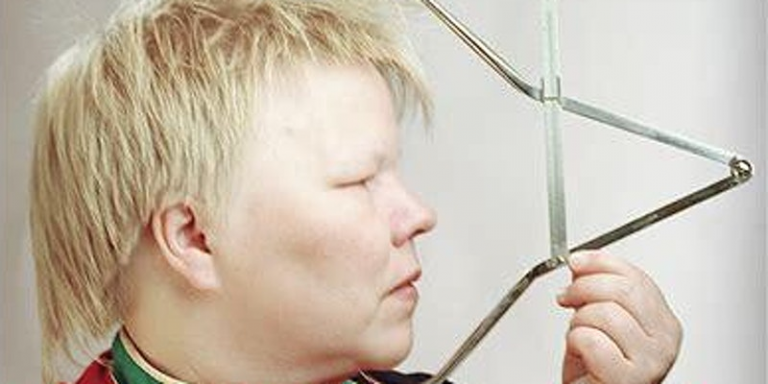The Legacy of Eugenics in Scandinavia
27 May 2021, 4:00 pm–6:00 pm

The Impact of Swedish Race Biology on the Sami and Tornedalians
This event is free.
Event Information
Open to
- All
Availability
- Yes
Cost
- Free
Organiser
-
Jakob Stougaard-Nielsen
About this event
Eugenics found fertile ground across Scandinavia in the first half of the twentieth century. Among all the Nordic countries, Sweden was arguably where eugenics met with its greatest success. Here the physician and psychiatrist Herman Lundborg established and headed the world’s first State Institute for Race Biology in Uppsala. A driver for Lundborg's promotion of eugenics was his obsession with the threat of racial mixing between Sámi, Finns and Swedes in the north. This panel sets out to explore the history of race biology in Sweden, Lundborg's field work among the indigenous peoples and national minorities of Northern Sweden, how skull measurements impacted minorities, and how racial profiling became the darkest side of the burgeoning Scandinavian welfare states.
The panel discussion will be introduced by Dr Riitta Valijarvi (UCL) and will include the screening of a part of Maja Hagerman and Claes Gabrielson's documentary film 'What Measures to Save a People? A film about Herman Lundborg'. Watch the film on Vimeo.
Artist Katarina Pirak Sikku will present her work 'Perpetually shrouded in the colours of the ancestors'. Based on the deep and difficult traces that racial biology has left on the Sami, Pirak Sikku's work engages with the archive after the Institute for Racial Biology that contains 117 photo albums, 49 of which contain photographs of Sami. The albums come from all over Sápmi and are divided by area. In the artwork, each of the 49 albums has been given a special cover, sewn with the utmost care based on the area's costume tradition. The material is cloth, tin wire, beads, ribbon and lace.
Historian Curt Persson will present his field work documenting the presence of Tornedalians in the archive of the Institute for Race Biology and wider abuse of Tornedalians and Meänkieli speakers by state institutions in the nineteenth and twentieth centuries.
The panel is part of 'From Small Beginnings...: Addressing the continuing shadows of eugenics' series of events across the world leading up to marking 100 years since the Second International Eugenics Congress held at the American Museum of Natural History in New York (September 22nd-28th, 1921). The series offers an opportunity to focus on how eugenics has been used and misused over the past century but still more importantly to critically assess how the intellectual inertia of eugenic habits of mind continue to globally influence political, social and medical ideas, in addition to practices and policies. Visit the website and programme of events at https://www.fromsmallbeginnings.org/
Speakers
Maja Hagerman. The Price-winning Swedish writer, journalist and documentary filmmaker Maja Hagerman is the author of the first ever book written about Herman Lundborg, the physician and psychiatrist who headed the world’s first State Institute for Race Biology in Uppsala, Sweden, from 1922 to 1935. The book Käraste Herman. Rasbiologen Herman Lundborgs gåta (2015, Dear Herman: The Mystery of the Race Biologist Herman Lundborg) won the Swedish Academy Axel Hirsch Prize, has been translated into German and was accompanied by Hagerman and Gabrielson's documentary film 'What Measures to Save a People? A film about Herman Lundborg'. Read more about the book here.
Katarina Pirak Sikku. The visual artist of Sami heritage Katarina Pirak Sikku lives and works in Jokkmokk. In 2005 she took a Master's degree in Fine Art at the Umeå Academy of the Arts. Already during her education, she asked the question, can grief be inherited? This has led to her long-standing research into race-biological material. In recent years, she has had artistic research grants giving her the opportunity to work extensively in the archive of the former Institute of Racial Biology. Her photos, drawings, installations and text-based heritage are taken from both her immediate family history and historical facts that have influenced her personal life. Sorrow and pain are emotions that her work evokes, but also humor and a great generosity. She strives to combine reflections about the political and social as well as the private and public areas of experience.
Curt Persson. The historian and Associate Senior Lecturer at Luleå University of Technology published the study Då var jag som en fånge: Statens övergrepp på tornedalingar och meänkielitalande under 1800- och 1900-talet [I was like a prisoner: The abuse of Tornedalians and Meänkieli speakers by the Swedish state in the nineteenth and twentieth centuries] in 2018. The study brings new evidence of the extend to which the people of Tornedalen was exposed to race-biological inspections such as skull measurements by the Institute for Race Biology, and that craniometry of children took place as late as 1951. Read the report here.
Organisers: Professor Jakob Stougaard-Nielsen (j.stougaard-nielsen@ucl.ac.uk) and Izabella Wodzka (izabella.wodzka.16@ucl.ac.uk) at Scandinavian Studies, University College London, in collaboration with the Institute of Advanced Studies and the Sarah Parker Remond Centre for the Study of Racism and Racialisation at UCL.
Participation is free and open to all.
You will receive an email with a link to the zoom event once you've booked a ticket.
Header image: Dollet I. Katarina Pirak Sikku, 2006.
 Close
Close

